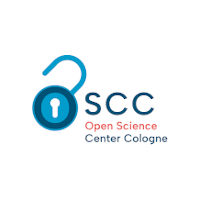Open Science at the University of Cologne
The University of Cologne (UoC) is committed to a culture of Open Science that embraces open exchange, transparency and reproducibility of research results. The aim is to increase the quality and effectiveness of research and higher education, the social benefits as well as the trust in science.
The international development of Open Science is based on the UNESCO Recommendation on Open Science (2021), which focusses on global challenges as well as values and principles for science. Accordingly, the goals of Open Science are not only transparency and reproducibility, but also equal opportunities, collaboration and sustainability. This cultural change as a consequence of the digital transformation of research processes - as described by the DFG in the position paper Open Science as Part of Research Culture (October 2022) - is also progressing steadily at the UzK. In order to consistently promote the culture of openness, the UzK establishes Open Science as a guiding principle.
It explains important components of Open Science as well as current framework conditions in a comprehensible way, formulates concrete recommendations and focuses on the subcategories Open Access, Open Data, Open Source and Open Educational Resources.
Open Science Center Cologne (OSCC)
In order to make the distributed activities and support structures for Open Science at the UoC more visible for research and teaching, to coordinate them and to develop them strategically, the University of Cologne founded the Open Science Center Cologne (OSCC) in 2023.
The OSCC is a virtual center under the direction of the Vice-Rector for Research. The Steering Committee makes strategic recommendations for the future direction of the OSCC. The coordinator of the OSCC is the first contact person and bundles all Open Science activities at the UoC. She is located as a central service in Division 7 Research Management. The Executive Board, which consists of the coordinator and representatives of all partner institutions and service departments , promotes local networking while taking subject-specific interests into account.
